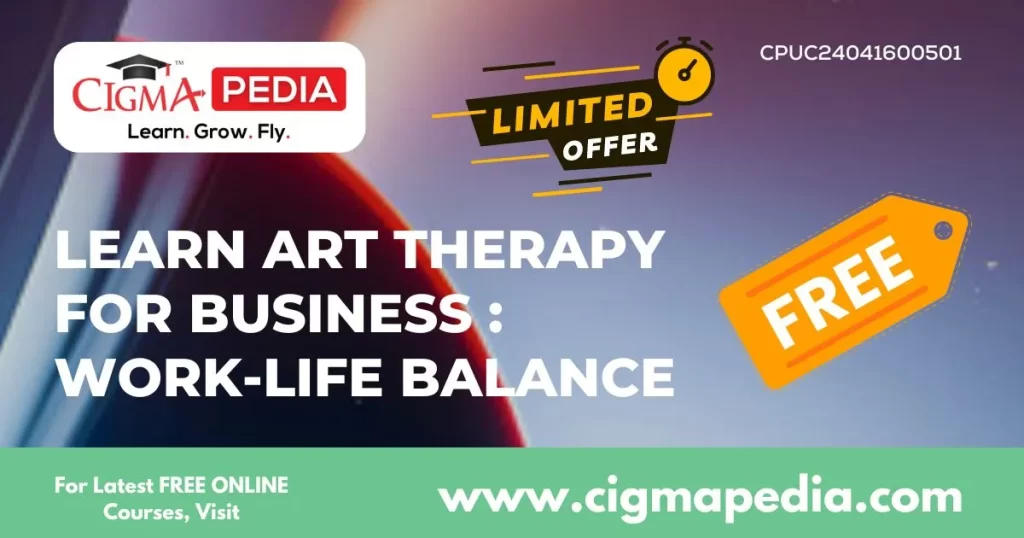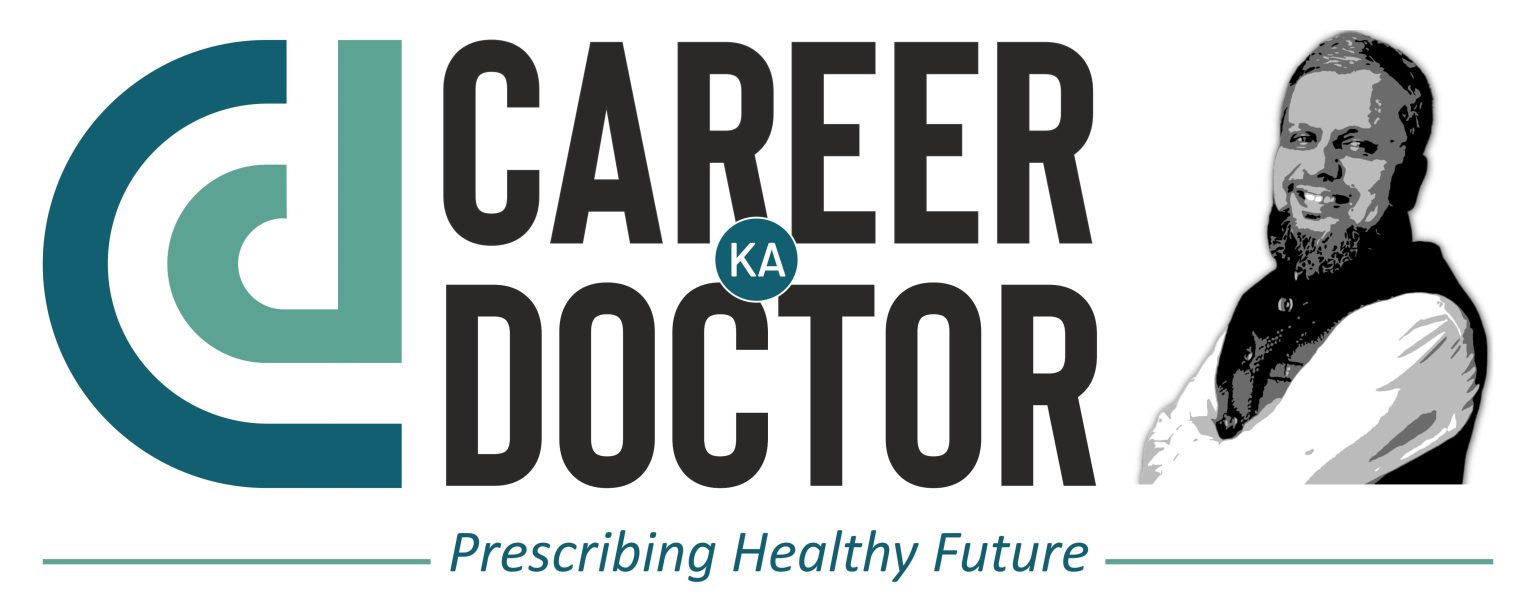Learn Art Therapy for Business: Work-Life Balance (Free Udemy Course) : Art Therapy for Business: Work-Life Balance
Also Check : Learn Leveraging Generative AI for Scholarly Research Writing (Free Udemy Course)
Contents
What you will learn in Art Therapy for Business Course
- Art therapy for work-life balance
- Early Morning shift problems
- How art therapy can help
- Nightshift problems
Also Check : CIGMA’s Free eBook Gem 2023 : Productivity Boosted
Learn Art Therapy for Business Course Includes
- 1 hour on-demand video
- 1 article
- 2 downloadable resources
- Access on mobile and TV
- Full lifetime access
- Certificate of completion
Requirement of Learn Art Therapy for Business Course
- For a better learning experience, we suggest you to use a laptop / mobile phone / pen and paper for taking notes, highlighting important points, and making summaries to reinforce your learning.
Description
- Welcome to course: Art Therapy for Business: Work-Life Balance by MTF Institute
- ! Full income from sales of that course will be used in Charity goals
- – Different Strokes was set up in 1996 in direct response to a need from younger stroke survivors to be able to reclaim their lives, challenging previously existing views of stroke recovery and changing the term for stroke sufferers from ‘victim’ to ‘survivor’.
- – Program of support of kids with mental deseases and additional mental needs
- You may support additionally these programs with purchasing or supporting of promotion of that course and Art Therapy Program.
- Different Strokes are a UK Charity who help younger stroke survivors and their families to reclaim their lives through active peer support. Each year there are 100,000 strokes in the UK; 1 in 4 of these occurs in somebody of working age or younger. Different Strokes recognises that younger stroke survivors and family members are the experts in stroke recovery and rehabilitation with first-hand knowledge of the issues and challenges facing families after stroke.
- Different Strokes has a Facebook Group for stroke survivors, family members and carers to share experiences, reduce isolation and improve coping strategies by learning from others. Stroke survivors can access a safe environment to chat and support each other twice a month at virtual meetings on Zoom. There is a Teen and Young Adult Befriending Service for stroke survivors aged 16 – 25 which offers support and advice by telephone. Exercise sessions specifically tailored for stroke survivors, set at five different levels to reflect the large variations in stroke survivors’ physical condition and mobility post-stroke, are available online. There is a network of peer stroke support groups run by volunteers around the country offering activities such as guest speakers, exercise sessions and group outings. Children’s Resources developed to help families explain what has happened when a parent has a stroke have been updated during 2023 to make them even more relevant, and inclusive, with the support of stroke survivors and their children.
- Course Instructor:
- Chris Sivewright
- 43+ years experience teaching Economics, Business, Sociology, Politics and other subjects in schools, universities and other colleges – State and Private Sector. Appeared in 100+ films (including corporate training and fitness videos). 100+ books on Amazon. Featured by the BBC, Polish TV, The Times, The Telegraph and…The Sun.
- Studied at:
- · University of Oxford (Philosophy and Economics)
- · Oxford Brookes (Teacher training)
- · University of Glamorgan (Business and Economics)
- Qualifications
- · Professional qualifications at Masters level
- · Business and Economics degree
- · Examiner for four major examining boards, at ‘O’ and ‘A’ level.
- · Three teaching diplomas plus CELTA
- · Qualified fitness trainer
- Key academic positions held:
- · Principal Oxford School of Learning
- · Director of Studies: St Joseph’s Hall, Oxford
- · Head of Economics: Cherwell Tutors
- · Head of Business and Economics: Pipers Corner School, Buckingham
- Founder: Almost Random Theatre
- Course provided by MTF Institute of Management, Technology and Finance
- MTF is the global educational and research institute with HQ at Lisbon, Portugal, focused on business & professional hybrid (on-campus and online) education at areas: Business & Administration, Science & Technology, Banking & Finance.
- MTF R&D center focused on research activities at areas: Artificial Intelligence, Machine Learning, Data Science, Big Data, WEB3, Blockchain, Cryptocurrency & Digital Assets, Metaverses, Digital Transformation, Fintech, Electronic Commerce, Internet of Things.
- MTF is the official partner of: IBM, Intel, Microsoft, member of the Portuguese Chamber of Commerce and Industry, and resident of the incubator “The Fintech House of Portugal”.
- MTF is present in 208 countries and has been chosen by more than 380,000 students.
- The importance of knowledge of art therapy and work-life balance for managers, employers, and HR managers cannot be overstated. Both concepts play a significant role in promoting the well-being and productivity of employees, which ultimately benefits the organization as a whole. Here’s how they are interconnected and how learning about art therapy can increase the quality of life:
- Stress Reduction and Mental Health Support:
- Managers, employers, and HR managers need to recognize that the modern workplace can be a source of stress and mental health challenges for employees. Long hours, tight deadlines, and high expectations can lead to burnout and decreased job satisfaction.
- Art therapy provides a creative and expressive outlet for employees to manage stress, cope with anxiety, and process their emotions. It can be a valuable tool in promoting mental well-being and resilience.
- Enhanced Creativity and Problem-Solving:
- Creativity is a valuable asset in the business world. Managers and employers can benefit from the knowledge of art therapy in fostering creativity and innovation among their teams.
- Engaging in creative activities through art therapy can help employees think outside the box, approach challenges with fresh perspectives, and come up with innovative solutions.
- Improved Communication and Team Building:
- Effective communication and team collaboration are essential for any organization’s success. Art therapy can facilitate better interpersonal skills and teamwork.
- Learning about art therapy can help managers and HR professionals incorporate team-building exercises that encourage collaboration, trust, and empathy, thus fostering a more harmonious work environment.
- Work-Life Balance:
- Managers and HR managers play a pivotal role in creating a workplace culture that values work-life balance. This includes promoting flexible work hours, encouraging vacation days, and recognizing the importance of personal time.
- Knowledge of work-life balance strategies can result in higher employee retention, increased motivation, and a healthier work environment. Art therapy can be part of these strategies as a way to de-stress and recharge outside of work.
- Employee Well-being and Job Satisfaction:
- Employee well-being directly impacts job satisfaction and, consequently, an organization’s overall success. Managers and HR managers should prioritize their employees’ overall quality of life.
- Art therapy can contribute to a higher quality of life by providing individuals with a sense of purpose, self-expression, and a means of exploring and addressing personal challenges. When employees are happier and healthier, they are more likely to be engaged and productive in their roles.
- Incorporating knowledge of art therapy and work-life balance into managerial practices can lead to a more supportive, creative, and fulfilling work environment. This, in turn, can increase employee satisfaction, reduce turnover, and enhance overall productivity. By recognizing the value of these concepts, managers, employers, and HR professionals can foster a workplace that prioritizes both professional success and the well-being of their staff, ultimately benefiting the organization as a whole.
Who this course is for :
- No special requirements. Course for any who want to develop the knowledge of art therapy
- The importance of knowledge of art therapy and work-life balance for managers, employers, and HR managers cannot be overstated. Both concepts play a significant role in promoting the well-being and productivity of employees, which ultimately benefits the organization as a whole. Here’s how they are interconnected and how learning about art therapy can increase the quality of life:
- Stress Reduction and Mental Health Support: Managers, employers, and HR managers need to recognize that the modern workplace can be a source of stress and mental health challenges for employees. Long hours, tight deadlines, and high expectations can lead to burnout and decreased job satisfaction. Art therapy provides a creative and expressive outlet for employees to manage stress, cope with anxiety, and process their emotions. It can be a valuable tool in promoting mental well-being and resilience.
- Enhanced Creativity and Problem-Solving: Creativity is a valuable asset in the business world. Managers and employers can benefit from the knowledge of art therapy in fostering creativity and innovation among their teams. Engaging in creative activities through art therapy can help employees think outside the box, approach challenges with fresh perspectives, and come up with innovative solutions.
- Improved Communication and Team Building: Effective communication and team collaboration are essential for any organization’s success. Art therapy can facilitate better interpersonal skills and teamwork. Learning about art therapy can help managers and HR professionals incorporate team-building exercises that encourage collaboration, trust, and empathy, thus fostering a more harmonious work environment.
- Work-Life Balance: Managers and HR managers play a pivotal role in creating a workplace culture that values work-life balance. This includes promoting flexible work hours, encouraging vacation days, and recognizing the importance of personal time. Knowledge of work-life balance strategies can result in higher employee retention, increased motivation, and a healthier work environment. Art therapy can be part of these strategies as a way to de-stress and recharge outside of work.
- Employee Well-being and Job Satisfaction: Employee well-being directly impacts job satisfaction and, consequently, an organization’s overall success. Managers and HR managers should prioritize their employees’ overall quality of life. Art therapy can contribute to a higher quality of life by providing individuals with a sense of purpose, self-expression, and a means of exploring and addressing personal challenges. When employees are happier and healthier, they are more likely to be engaged and productive in their roles.
- Incorporating knowledge of art therapy and work-life balance into managerial practices can lead to a more supportive, creative, and fulfilling work environment. This, in turn, can increase employee satisfaction, reduce turnover, and enhance overall productivity. By recognizing the value of these concepts, managers, employers, and HR professionals can foster a workplace that prioritizes both professional success and the well-being of their staff, ultimately benefiting the organization as a whole.
- Show less
Also Check : UCL Global Masters Scholarship in UK 2024 | Fully Funded | Last Date
How to Get this course FREE?
Get a 100% Discount On Udemy Paid Courses by clicking on the “GET THIS FOR FREE ON UDEMY“. This Course coupon code is automatically added to the “GET THIS FOR FREE ON UDEMY“.
Price & Validity
Actual Price : Rs.1799/-
After 100% Discount : Rs.0/-
Valid for First 1000 Users or till the last date. Hurry up before it closes
Apply this Coupon : DDBA857E180737275F05 (For 100% Discount)
Also Check : Elevenlabs : Where Creativity Meets Cutting-Edge AI
Note : Udemy Courses listed here are offered FREE only for first 1000 users or are limited by a date. If the 1000 users limit or last date is completed, the course becomes paid.









